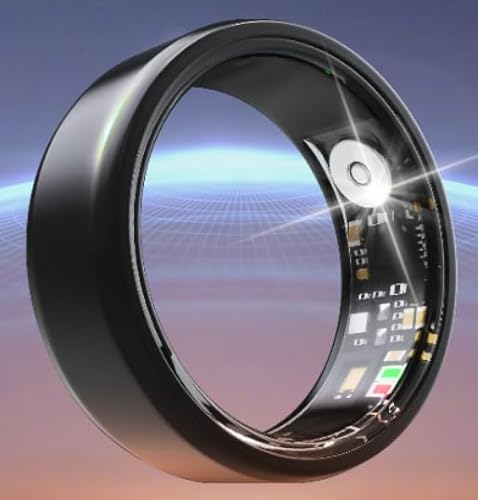A
Aaron_b
Hey guys. I thought I would get some input on what may be in store for my future. Now would be a good time to get your crystal ball from the shoebox under the couch.
(First, I should mention that my valve problem wasn't caught in a routine exam and I didn't get it taken care of before damage was done to the heart, I had moderate/severe symptoms for several years before I saw a doc about it)
I am 8 weeks out of surgery and I am in limbo as to what I should be expecting. No one mentioned any damage to the heart prior to my valve surgery and I was too ignorant to get my records and research everything myself. The news that all is not well was broken to me by the cardiologist that discharged me after surgery. He indicated that my heart was "weak" and that I "may" see improvement over time. Here is the info he was referring to from my TEE and cardiac catheterization:
LVEDD: 73mm
LVESD: 52mm
LVPWD:13mm
From the cardiac cath: "moderate generalized hypokinesis of the left ventricle"
From the TEE: "The left ventricle is enlarged with evidence of volume overload" "Overall, left ventricular function appeared to be moderately depressed globally" "Estimated ejection fraction 35%"
I pretty much understand what all of that means after reading this site. What I am unclear about is whether I can expect any improvement. I wasn't informed about this stuff before the surgery so I expected to be as good as new afterwards since I am 31 years old and should have recovered quickly. I know that the enlargement has a good chance of some reversal but much of what I read on the subject indicates that it is unlikely to lead to an increase of cardiac output. I wouldn't think an EF of 35% would cause me so many problems but it sure seems to be kicking my butt... unless there is more to it that I don't understand.
My current cardiologist is having me enroll in cardiac rehab and said that I may see improvement over time. She didn't seem enthusiastic about it and I couldn't get any specific answer to what kind of improvements I would see. Also the improvements she hopes for seem to be on a long time scale. 6 months, 1 year, 2 years... who knows?
My problem is that I am still pretty fatigued and have no stamina. On the few occasions that I wake up and feel energetic, I'll "crash" by midday after doing a few simple errands. Today I tried to force myself to stay out in the heat and handle a few chores but after 30 minutes I simply couldn't breathe.
I was fully expecting to be back at work by now but I'm an a/c technician. If I can't take 30 minutes in our early summer heat, how will I handle a typical 10+ hour day?
Any insight here? Have any of you encountered similar circumstances where you can offer likely outcomes to my recovery?
(First, I should mention that my valve problem wasn't caught in a routine exam and I didn't get it taken care of before damage was done to the heart, I had moderate/severe symptoms for several years before I saw a doc about it)
I am 8 weeks out of surgery and I am in limbo as to what I should be expecting. No one mentioned any damage to the heart prior to my valve surgery and I was too ignorant to get my records and research everything myself. The news that all is not well was broken to me by the cardiologist that discharged me after surgery. He indicated that my heart was "weak" and that I "may" see improvement over time. Here is the info he was referring to from my TEE and cardiac catheterization:
LVEDD: 73mm
LVESD: 52mm
LVPWD:13mm
From the cardiac cath: "moderate generalized hypokinesis of the left ventricle"
From the TEE: "The left ventricle is enlarged with evidence of volume overload" "Overall, left ventricular function appeared to be moderately depressed globally" "Estimated ejection fraction 35%"
I pretty much understand what all of that means after reading this site. What I am unclear about is whether I can expect any improvement. I wasn't informed about this stuff before the surgery so I expected to be as good as new afterwards since I am 31 years old and should have recovered quickly. I know that the enlargement has a good chance of some reversal but much of what I read on the subject indicates that it is unlikely to lead to an increase of cardiac output. I wouldn't think an EF of 35% would cause me so many problems but it sure seems to be kicking my butt... unless there is more to it that I don't understand.
My current cardiologist is having me enroll in cardiac rehab and said that I may see improvement over time. She didn't seem enthusiastic about it and I couldn't get any specific answer to what kind of improvements I would see. Also the improvements she hopes for seem to be on a long time scale. 6 months, 1 year, 2 years... who knows?
My problem is that I am still pretty fatigued and have no stamina. On the few occasions that I wake up and feel energetic, I'll "crash" by midday after doing a few simple errands. Today I tried to force myself to stay out in the heat and handle a few chores but after 30 minutes I simply couldn't breathe.
I was fully expecting to be back at work by now but I'm an a/c technician. If I can't take 30 minutes in our early summer heat, how will I handle a typical 10+ hour day?
Any insight here? Have any of you encountered similar circumstances where you can offer likely outcomes to my recovery?






















